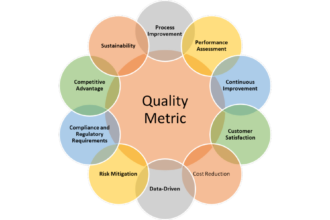Success is often viewed through the lens of skill, talent, and sheer hard work. But what if I told you that one of the most underrated qualities contributing to success is something much simpler? Enter teachability—a hidden superpower waiting to be unleashed. Teachability isn’t just about being willing to learn; it’s a mindset that embraces growth and adaptability in an ever-changing world. In this fast-paced environment where knowledge quickly becomes outdated, having a teachable spirit can set you apart from the crowd and pave your way toward achievement. Let’s dive deeper into what makes teachability so vital for personal and professional success today.
- The Importance of Being Teachable in Today’s World
- Characteristics of a Teachable Person
- Benefits of Embracing Teachability
- How to Cultivate Your Teachability
- Overcoming Barriers to Teachability
- Real-Life Success Stories of Embracing Teachability
- Conclusion: Continuously Learning and Growing Through Teachability
The Importance of Being Teachable in Today’s World
In today’s fast-paced world, adaptability is key. Industries evolve rapidly, and new technologies emerge constantly. Being teachable allows individuals to keep pace with these changes.
The willingness to learn fosters innovation. When you embrace a mindset of growth, you open doors to fresh ideas and perspectives. This openness can lead to creative solutions that set you apart from the competition.
Moreover, collaboration thrives in environments where teachability is valued. Team members who are eager to learn from each other cultivate stronger relationships and enhance collective performance.
Additionally, being teachable boosts resilience. When faced with failure or setbacks, those willing to learn view challenges as opportunities for growth rather than threats.
In an age where knowledge becomes obsolete almost overnight, maintaining a curious attitude is essential for long-term success and relevance in any field.
Characteristics of a Teachable Person
A teachable person is curious. They possess an innate desire to learn and explore new ideas. This thirst for knowledge drives them to ask questions and seek answers.
Open-mindedness is another key characteristic. Teachable individuals welcome diverse perspectives, recognizing that every opinion can offer valuable insights.
They exhibit humility as well. Acknowledging that they don’t have all the answers allows them to grow from feedback and criticism without feeling defensive.
Resilience also plays a significant role in their journey. Rather than seeing setbacks as failures, they view them as stepping stones toward improvement.
Self-awareness sets teachable people apart. They understand their strengths and weaknesses, which helps them focus on areas needing growth while celebrating their achievements along the way.
Benefits of Embracing Teachability
Embracing teachability opens doors to endless opportunities. It enhances your ability to learn new skills and adapt quickly in an ever-changing world. When you remain open to feedback, you become more effective in both personal and professional settings.
Teachable individuals often build stronger relationships. They listen actively, showing respect for diverse perspectives. This fosters collaboration and creates a supportive environment where ideas can flourish.
Moreover, being teachable cultivates resilience. Challenges become less daunting when approached with a mindset geared toward growth. You’ll find yourself bouncing back from setbacks with renewed energy and focus.
Additionally, embracing this trait boosts confidence. The knowledge gained through continuous learning empowers you to tackle unfamiliar situations head-on, reinforcing your sense of self-worth as well as competence in various activities or fields.
How to Cultivate Your Teachability
To cultivate your teachability, start by embracing curiosity. Ask questions and seek to understand different perspectives. This mindset opens the door to new ideas.
Practice active listening. When someone shares their knowledge, focus entirely on what they’re saying without planning your response in advance. This allows you to absorb information more effectively.
Seek feedback regularly. Constructive criticism is a powerful tool for growth. Embrace it as an opportunity rather than a setback.
Surround yourself with diverse individuals who challenge your thoughts and beliefs. Engaging with different viewpoints enhances adaptability and broadens your understanding.
Set learning goals for yourself, whether through reading books or attending workshops. Committing to lifelong learning nurtures an adaptable mindset that thrives in various environments.
Reflect on experiences daily. Take time to think about what you’ve learned each day and how you can apply those lessons moving forward.
Overcoming Barriers to Teachability
Overcoming barriers to teachability often starts with awareness. Recognizing your own limitations is crucial. It’s easy to fall into the trap of thinking you know everything. This mindset can stifle growth.
Fear is another significant barrier. Many people hesitate to ask questions or seek feedback because they worry about looking uninformed. Embracing vulnerability opens doors, allowing you to learn from others’ insights and experiences.
Ego plays a major role too. When individuals prioritize pride over knowledge, they miss out on valuable lessons that could enhance their skills and perspective.
Additionally, surrounding yourself with like-minded individuals can create a supportive environment for growth. Engage in discussions where questioning and curiosity are encouraged.
Commit to lifelong learning as an ongoing journey rather than a destination; this shift in perspective can transform how you approach challenges and opportunities alike.
Real-Life Success Stories of Embracing Teachability
Stories of teachability often illuminate remarkable journeys.
Consider the tale of J.
K. Rowling, who faced countless rejections before publishing “Harry Potter.” Instead of giving up, she embraced feedback and refined her craft. Her willingness to learn led to a literary phenomenon that changed children’s literature forever.
Then there’s Howard Schultz, the former CEO of Starbucks. When he joined the company, he understood little about coffee culture. However, his eagerness to listen and adapt transformed Starbucks into a global brand synonymous with quality coffee and customer experience.
These examples highlight how teachability can lead to extraordinary outcomes. Individuals who remain open to growth not only achieve personal success but also inspire others along the way. Embracing new ideas fosters innovation and progress in any field or endeavor.
Conclusion: Continuously Learning and Growing Through Teachability
Embracing teachability opens up a world of possibilities. It’s about recognizing that learning is a lifelong journey. Those who adopt this mindset are often the ones who thrive, regardless of their circumstances.
The beauty of teachability lies in its ability to transform setbacks into stepping stones. When you approach life with an open mind and heart, every experience becomes an opportunity for growth.
This commitment to continuous learning fosters resilience and adaptability—essential traits in today’s fast-paced environment. As challenges arise, those who are teachable find ways to navigate change successfully.
Nurturing your own teachability creates positive ripples beyond just personal success. It inspires others around you to embrace the same principles, creating a culture where knowledge is shared and valued.
So take a moment to reflect on your own journey towards being more teachable. Embrace curiosity and stay open to new ideas. By doing so, you’ll not only enhance your own life but also contribute positively to the lives of those around you.

















